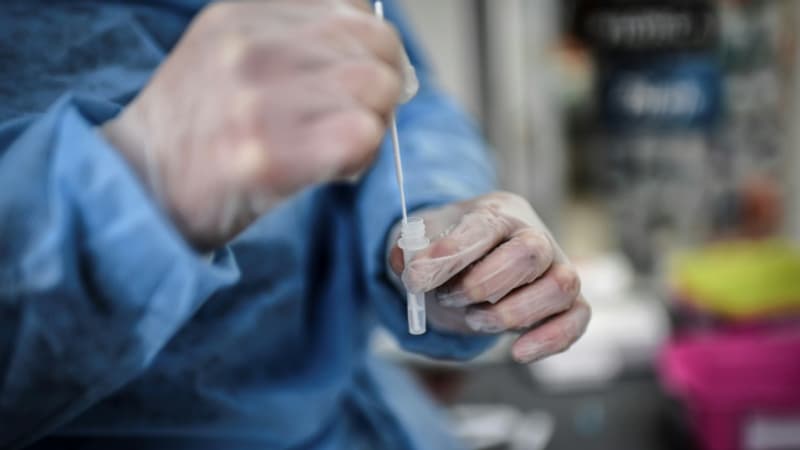Three years after classifying the disease as a “public health emergency of international concern”, the World Health Organization (WHO) decided this Monday to maintain its highest level of alert on the Covid-19 pandemic. If the WHO considers that the pandemic “is probably at a transition point”, it regrets that surveillance and genetic sequencing, which make it possible to follow the evolution of the virus and its movements, have drastically decreased.
Like vaccination, emphasizes the WHO, either in poor countries due to lack of serums, means and distrust, or in wealthy countries where boredom flourishes and where the anti-vaccine movement has sown doubt.
Abandonment of the “test, trace, isolate” strategy
After the ninth wave at the end of December, the indicators are down in France and the health situation is improving, with less than 16,000 hospitalized patients currently, compared to almost 25,000 at the end of December. According to the Covid Tracker site, the number of contaminations has also decreased in a month, from more than 20,000 to less than 5,000 per day on average. According to figures from Public Health France, as of January 25, hospitalizations have decreased by 32.6% in seven days, deaths by 31.9% and intensive care admissions by 34.1%.
France is even preparing to lift some of the latest restrictive measures. As of February 1, exceptional work stoppages will no longer be possible, with no waiting day for people who test positive for Covid-19. Therefore, the end of the measure, initially planned “at the latest” at the end of 2023, has been brought forward.
Deprecated in a context of falling cases, the “systematic isolation” of positive cases and the “performing of a test” after two days for their contacts will no longer be necessary. Finally, the monitoring of “contact cases” will definitively cease, through the “Covid Contact” service managed by Health Insurance.
“Is the time right? Hard to say”
Doctors remain cautious. “It’s a calculated bet, a decision in continuity,” Benjamin Davido, an infectologist at the Raymond-Poincaré de Garches hospital in Hauts-de-Seine, told BFMTV.com. “Is the time right? It’s hard to say,” he wonders.
For his part, the epidemiologist and president of the Covid-19 cell of the National Academy of Medicine Yves Buisson considers the decision “perfectly in line with the current situation”, describing “measures since the beginning of the pandemic”.
The two specialists agree, however, that the pandemic is far from over. “It is not because we stop following it that the virus ends”, underlines Benjamín Davido, “we have to be very careful when we talk about the end of the pandemic. It may be more the end of a stage”.
An analysis shared by Yves Buisson, who explains that we are “in a transformation of Covid from a pandemic state to an endemic state”, that is, a virus or a disease that permanently settles in a country or region.
An “ambiguous” message
“The message must be qualified, it is not a long-term message,” adds Benjamín Davido, who denounces its “ambiguity”: the Government lightens the anti-Covid device but otherwise does not remember that the virus continues to circulate in France . “There is an important element that should have been added: individual isolation with the mask for contagious people,” said the infectious disease specialist.
For epidemiologist and biostatistician Catherine Hill, the debate is quite different. According to her, the tracking tools “never worked” anyway.
“Interpreting this cessation of traces as a reduction in measures, implying that the situation allows such a reduction, is absolutely abusive,” he added to BFMTV.com, stressing that several dozen people continue to die every day as a result of Covid. “We are in a hole but we don’t know what will happen” in the future, he explains.
Focus on vaccination
The three specialists agree on the importance of vaccination, lamenting “the wavering message” on this subject. “We must focus our efforts on vaccination, which are not enough,” said Yves Buisson.
“Protection wanes over time,” recalls Catherine Hill, “you have to tell people to repeat a dose of vaccine at six months.” Not everyone dismisses the risk of a new variant emerging, which could give rise to a new wave. “The virus is everywhere, the successive waves depend on the variants”, details Catherine Hill, while Yves Buisson assures that “we cannot rule out the risk of the appearance of new variants”.
What then about the future of the pandemic and its impact on us? For the infectologist Benjamín Davido, the answer lies in another question: “What would the government have to do if the cases increased again?”
Source: BFM TV


